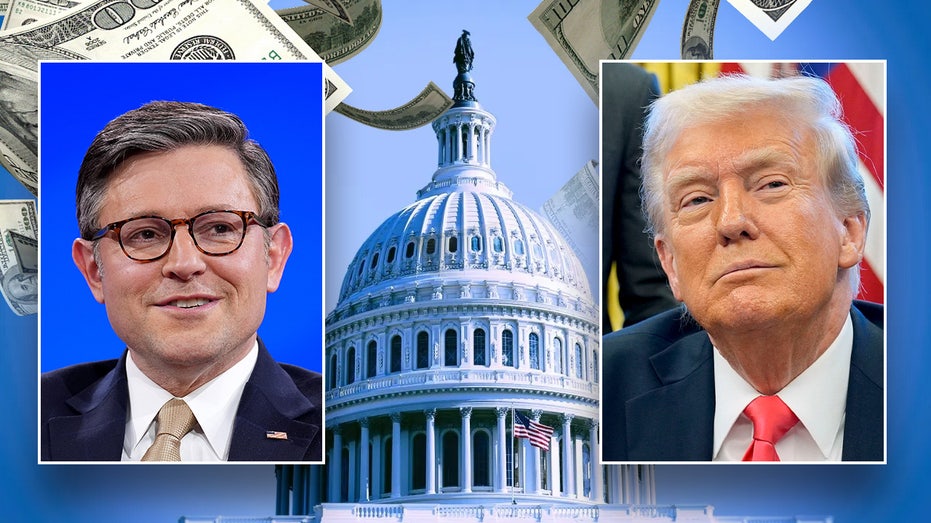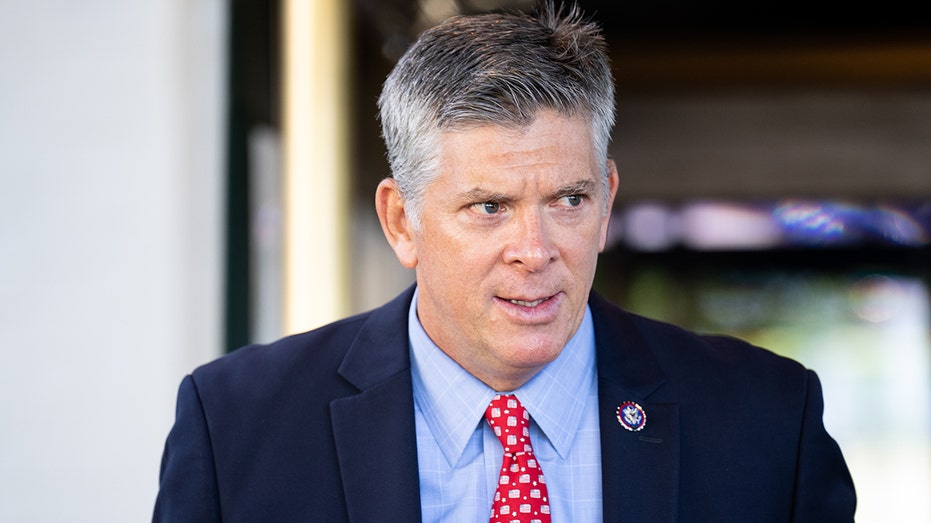Ahmedabad Plane Crash: 40-year-old man survives deadly crash, says, ‘There were…’

As relatives of the passengers onboard continue to look for their loved ones at the hospital, 40-year-old Vishwas Kumar Ramesh, a British national, lies on a bed in the general ward who gave a chilling account of how he survived the deadly crash.
Ahmedabad Plane Crash: Tata Group announces Rs 1 crore compensation for families of deceased

The Tata Group on Thursday announced that it would provide a compensation of Rs 1 crore to the families of each person who lost their life in a tragic plane crash in Ahmedabad earlier in the day. The group further said it would cover the medical expenses of those injured in the incident.
Ahmedabad Plane Crash: Who was Vijay Rupani, ex-Gujarat CM who died in Air India crash?

Former Gujarat chief minister Vijay Rupani, who was among the 242 passengers on board the crashed Air India flight bound to London died in the plane crash. Speaking to reporters, Gujarat BJP Chief CR Patil confirmed his demise.
Reporter’s Notebook: GOP lawmakers prepare to slash $9.1B from USAID, NPR and PBS in rare vote

DOGE targeted tens of billions of dollars in what it deemed waste, fraud and abuse. But that means nothing unless Congress acts. For the first time in three decades, lawmakers will vote today to claw back money already appropriated. This is money DOGE recommended eliminating, and since Congress has the power of the purse, that requires a roll call vote. REPORTER’S NOTEBOOK: HOW THE HOUSE IS TECHNICALLY DONE WITH THE ‘BIG, BEAUTIFUL BILL’ Today’s spending cancellation plan targets USAID, NPR and PBS. But it’s about the math. There is some skepticism among Republicans who support public broadcasting or foreign aid programs. POWER PLAYERS OR BASEBALL PLAYERS? THE HISTORY BEHIND THE CONGRESSIONAL BASEBALL GAME This bill amounts to cutting $9.1 billion in spending. That’s a federal teardrop – as Republicans often talk about reining in federal dollars. This is their chance to do it. The vote will be tight, and it would be an embarrassment for House Republicans if the bill fails, and they stumble to implement even a pedestrian cut – especially since they historically talk a good game about the debt and deficits.
Fate of Trump’s $9.4 billion spending cut package hangs on House GOP moderates

The fate of President Donald Trump’s $9.4 billion spending cuts request could rest on the shoulders of a handful of moderate House Republicans. The House of Representatives is set to consider the measure on Thursday afternoon, which cuts $8.3 billion in funds to the U.S. Agency for International Development (USAID) and just over $1 billion from the Corporation for Public Broadcasting, which routes federal funds to NPR and PBS. But at least four GOP lawmakers are known to have expressed some concerns about various aspects of the package. House Republican leaders have a razor-thin, three-seat majority in the chamber, which means any dissent beyond that could sink the bill. MIKE JOHNSON, DONALD TRUMP GET ‘BIG, BEAUTIFUL’ WIN AS BUDGET PASSES HOUSE None of the four Republicans – Reps. Mark Amodei, R-Nev., David Valadao, R-Calif., Nicole Malliotakis, R-N.Y., and Don Bacon, R-Neb. – have said how they will vote on the bill, however. They also all approved a procedural vote to allow for debate on the measure. But Amodei, co-chair of the Public Broadcasting Caucus, told Fox News Digital on Wednesday afternoon that he was not worried about NPR and PBS’ national brands, with which he acknowledged the GOP’s bias concerns, and that his fear was gutting funding to smaller local outlets that rely on federal funding to keep people informed in areas with less access. “These aren’t the people that are doing editorial boards that are flipping you the bird,” Amodei argued to his fellow Republicans. “They’re kind of important pieces of infrastructure in their communities.” Amodei, who is intimately familiar with the government funding process as a House appropriator, said “a whole bunch of red counties” depend on public broadcast funding. “It’s easier for the nationals to raise money if they’ve got to make up for some funding they lost than it is these guys,” he said. Valadao, who represents a California swing district, told Politico he was not sure if the measure would pass. He declined to elaborate on his concerns to Fox News Digital, however, and his office did not respond to a request for clarification. Meanwhile, Malliotakis told reporters on Wednesday that she met with Republican voters in her district who wanted PBS funding preserved – but that her real concern was the process. “I think that there’s a lot of questions that members have regarding what programs specifically are going to be cut. This is a broad look at general accounts. We are, at the end of the day, the Congress that holds the power of the purse. We’re the ones who we’re supposed to be identifying where funding is going. And this gives a lot of discretion to the White House to be doing that unilaterally without Congress,” Malliotakis said. “I think there’s a large number of members that do have concerns about that. And whether members are going to vote yes or no is a different story in this place. But I have, certainly, reservations… and we’ll see how things go.” Bacon, one of three House Republicans representing a district that former Vice President Kamala Harris won in 2024, told reporters Tuesday morning that he was feeling better about the legislation after getting assurances that the foreign aid cuts would not gut money for critical medical research. MCCAUL TOUTS MONEY IN TRUMP TAX BILL TO PAY TEXAS BACK FOR FIGHTING BIDEN BORDER POLICIES He did not say whether his earlier concerns about PBS and NPR were alleviated, however, nor did he say how he would vote on the bill. Bacon told reporters last week, “It does bother me, because I have a great rapport with Nebraska Public Radio and TV.” When reached for comment, his office pointed Fox News Digital to Bacon’s Wednesday morning appearance on C-SPAN. “I think the president has to work with us and make this better. So I’m in opposition. That said, I’m in current negotiations with the leadership on this as well,” Bacon said. The $9.4 billion proposal is called a rescissions package, a mechanism for the White House to block congressionally approved funding it disagrees with. Once transmitted to Capitol Hill, lawmakers have 45 days to approve the rescissions proposal, otherwise it is considered rejected. Such measures only need a simple majority in the House and Senate to pass. But that’s no easy feat with Republicans’ thin majorities in both chambers. If passed, Republican leaders hope the bill will be the first of several rescissions packages codifying spending cuts identified by Elon Musk’s Department of Government Efficiency (DOGE). Musk set out with a goal of finding $2 trillion in federal waste, but wound up identifying about $180 billion. House GOP leaders lauded the proposal during their weekly press conference on Tuesday. “These are commonsense cuts. And I think every member of this body should support it. It’s a critical step in restoring fiscal sanity and beginning to turn the tides and removing fraud, waste, and abuse from our government,” Speaker Mike Johnson, R-La., said.
Biden breakdown: Where investigations into the former president stand
Former President Joe Biden left office in January, but questions about his mental acuity and decline while in office continue to mount amid the release of audio of his interview with former Special Counsel Robert Hur and his cancer diagnosis, drawing attention to a number of actions taken in his final days in office and beyond. BIDEN STRUGGLES WITH WORDS, KEY MEMORIES IN LEAKED AUDIO FROM SPECIAL COUNSEL HUR INTERVIEW Here’s a look at the known, active investigations into the former president and his team: Former President Joe Biden used his final weeks as commander-in-chief to grant clemency and pardon more than 1,500 individuals, in what the White House described at the time as the largest single-day act of clemency by a U.S. president. The Justice Department is reviewing the list of people that were granted pardons by former President Joe Biden, amid concerns about his use of an AutoPen to automatically sign documents. DOJ Pardon Attorney Ed Martin is reviewing the list of Biden-era pardons granted during the former president’s final weeks in office, including the one granted to his son, Hunter Biden, and the preemptive pardons granted to Dr. Anthony Fauci, Gen. Mark Milley, Biden family members, and members of the House Committee investigating Jan. 6. BIDEN ONLY HAND-SIGNED ONE PARDON DURING FINAL SPREE, AND IT WAS HIS MOST CONTROVERSIAL ONE But Biden only signed one pardon by hand during his final weeks in office—and it was his most controversial one—for his son, Hunter Biden. Biden pardoned his son Hunter in December 2024 after vowing to the American people for months he would not do so. Hunter Biden was found guilty of three felony gun offenses during special counsel David Weiss’ investigation. The first son was also charged with federal tax crimes over his alleged failure to pay at least $1.4 million in taxes. Before his trial, Hunter Biden entered a surprise guilty plea. Former President Biden in December 2024 announced a blanket pardon that applies to any offenses against the U.S. that Hunter Biden “has committed or may have committed” from Jan. 1, 2014, to Dec. 1, 2024. “From the day I took office, I said I would not interfere with the Justice Department’s decision-making, and I kept my word even as I have watched my son being selectively, and unfairly, prosecuted,” the former president said. HERE ARE BIDEN’S MOST CONTROVERSIAL PARDONS, MAINLY SIGNED USING AUTOPEN “There has been an effort to break Hunter — who has been five and a half years sober, even in the face of unrelenting attacks and selective prosecution. In trying to break Hunter, they’ve tried to break me — and there’s no reason to believe it will stop here. Enough is enough. “I hope Americans will understand why a father and a president would come to this decision.” The House Oversight Committee, led by Chairman James Comer, R-Ky., is leading an investigation into an alleged cover-up of Biden’s mental decline. The investigation, specifically, is into whether those inside Biden’s inner-circle knowingly colluded to hide the former president’s declining mental acuity and used methods to circumvent the former president when it came to the issuance of important orders, particularly through the use of an autopen tool used to mimic the president’s signature. HOUSE GOP SECURES FOUR KEY WITNESSES IN BIDEN MENTAL-DECLINE PROBE AS FORMER AIDES AGREE TO TALK So far, four former Biden aides have agreed to voluntarily testify for transcribed interviews, including the director of Biden’s former Domestic Policy Council, Neera Tanden, Biden’s assistant and senior advisor to the first lady, Anthony Bernal, former special assistant to Biden and Deputy Director of Oval Office Operations, Ashley Williams, and Biden’s Deputy Chief of Staff, Annie Tomasini. Tanden will appear before the House Oversight Committee on June 24, Bernal two days later on June 26, while Williams will testify July 11 and Tomasini on July 18. LONE BIDEN OFFICIAL BREAKS SILENCE ON COGNITIVE DECLINE AS CABINET STAYS MUTE But Biden’s former White House doctor, Kevin O’Connor declined an invitation to sit for a transcribed interview scheduled for June 27. Comer subpoenaed O’Connor to compel that testimony. Comer sent letters to five more top former Biden staffers, putting his total outreach in the investigation to 10 people so far. The latest round of letters are being sent to former White House Chief of Staff Ron Klain, former senior communications advisor Anita Dunn, former top advisors Michael Donilon and Steve Ricchetti, and former Deputy Chief of Staff for Policy Bruce Reed. Former President Joe Biden was diagnosed with an “aggressive form” of prostate cancer in May. “Last week, President Joe Biden was seen for a new finding of a prostate nodule after experiencing increasing urinary symptoms,” Biden’s team shared in a statement. “On Friday, he was diagnosed with prostate cancer, characterized by a Gleason score of 9 (Grade Group 5) with metastasis to the bone.” “While this represents a more aggressive form of the disease, the cancer appears to be hormone-sensitive which allows for effective management. The President and his family are reviewing treatment options with his physicians,” the statement said. JOE BIDEN DIAGNOSED WITH ‘AGGRESSIVE FORM’ OF PROSTATE CANCER WITH METASTASIS TO THE BONE During his presidency, Biden had a “cancerous” skin lesion removed from his chest, the White House said at the time. Biden, during a 2022 speech discussing pollution in his home state, said: “That’s why I and so damn many other people I grew up (with) have cancer.” But House Oversight Committee Chairman James Comer has expanded his investigation into Biden’s mental decline to include an investigation into the timeline of when Biden learned he had cancer. BIDEN’S WHITE HOUSE PHYSICIAN SUBPOENAED AS REPUBLICANS DIG DEEPER INTO ALLEGED COGNITIVE DECLINE COVER-UP “If you’ll remember, Joe Biden did an interview several years ago and said he had cancer. The White House quickly issued a statement saying, oh, he misspoke,” Comer said during an appearance on Fox Business’ “Mornings with Maria.” “Now, how many people do you know in the history of the world that have misspoke
Ahmedabad Plane Crash: Why did Gatwik-bound Air India plane crash? Was THIS snag reason…?

Though the Ministry of Civil Aviation, the Directorate General of Civil Aviation (DGCA) and the Aircraft Accident Investigation Bureau (AAIB) have launched a detailed probe into the causes of the crash, early study indicates a major flaw.
Delhi-Ghaziabad train derails near Shivaji Bridge, coach falls off tracks

The electric multiple unit (EMU) train was on its way from Ghaziabad to Nizamuddin Railway Station.
‘I call it a rebellion’: Maxine Waters’ history of enflaming crowds, from Rodney King to today

Eighteen-term Democrat Rep. Maxine Waters resurfaced in the news after several run-ins with federal authorities during the ongoing illegal immigration riots in California, just as her House tenure began amid prior Angeleno unrest. In 1992, as she was finishing her first term in Congress, the not-guilty verdict against White LAPD officers seen beating a Black motorist named Rodney King sparked a similar conflagration in Los Angeles, and Waters was in the midst of it then as well. The riots greatly affected her South Los Angeles district, and Waters was quoted at the time as appearing to downplay the violence not as a “riot” but as “just a bunch of crazy people who went out and did bad things for no reason.” “I maintain it was somewhat understandable, if not acceptable. So I call it a rebellion,” she said, according to the Los Angeles Times. MAXINE WATERS TORCHED BY FEDS FOR ‘TAUNTING’ GUARDSMEN AND ‘SPEWING LIES’ ABOUT RIOTS, TRYING TO ENTER JAIL Waters had joined the Rev. Jesse Jackson in trying to convince the Justice Department to file civil rights charges against the acquitted officers, blaming the rioting on Los Angeles Police Department (LAPD) Chief Daryl Gates and President George H.W. Bush, according to famed journalist Robert Novak. When Rep. Marjorie Taylor Greene, R-Ga., attempted to have Waters expelled from Congress in 2021 for “inciting violence and terrorism,” the Democrat claimed some of her past remarks were taken out of context. “I am not worried that they’re going to continue to distort what I say,” she told The Grio after Greene led her resolution with Waters’ Rodney King-era statements. Greene said Waters violated House Rule 23’s clause regarding conduct by members “at all times in a manner that shall reflect creditably on the House.” At a 2007 anti-war protest, Waters declared she was “not afraid of George Bush” and also pledged to “get rid of” then-Defense Secretary Donald Rumsfeld. She later drew the ire of Greene and other Republicans when she told an LGBTQ gala, “I will go and take out Trump tonight.” Defenders said she was speaking rhetorically and politically and not threatening the mogul. Later in Trump’s first administration, Waters was filmed on a California street corner shouting at supportive demonstrators and instructing them to be disruptive toward Trump allies. MAXINE WATERS TAUNTS ARMED AGENTS AFTER FEDS SLAM DOOR ON HER DURING LA RIOTS: ‘YOU BETTER SHOOT STRAIGHT’ “If you see anybody … in a restaurant, in a department store, at a gasoline station, you get out, and you create a crowd, and you push back on them. And you tell them that they are not welcome.” She later said she did not physically threaten Trump supporters, though then-White House press secretary Sarah Huckabee Sanders had earlier been run out of a Lexington, Va., restaurant and then-Homeland Security Secretary Kirstjen Nielsen was accosted at a Washington, D.C., eatery. In April 2021, Waters rallied in Brooklyn Center, Minn., while ex-Minneapolis Officer Derek Chauvin was on trial for the murder of George Floyd. Waters was recorded telling protesters to “stay” in the street and warned that if the jury delivered a not-guilty verdict, “We cannot go away … we’ve got to get more confrontational.” The comments caught the attention of trial Judge Peter Cahill, suggesting the comments could lead to a defense appeal and also disrespected the judicial branch. Waters later pushed back on some characterizations, saying, “I am nonviolent. I talk about confronting the justice system. … I’m talking about speaking up.” In February, Waters appeared in front of the Department of Education building in Washington along with other House Democrats. A security guard was confronted as lawmakers tried to gain entry to voice concerns about Secretary Linda McMahon’s downsizing plans. This week, while riots again raged in Los Angeles, Waters hurried toward a group of National Guardsmen entering the plywood-covered door of the Metropolitan Detention Center. CLICK HERE TO GET THE FOX NEWS APP “I just came to use my congressional authority to check on David Huerta,” she said, referring to the SEIU union leader arrested during an immigration raid. A Guardsman told Waters to contact “public affairs” and slammed the door in her face. She was later seen asking armed Guardsmen if they planned to shoot her, why they were there and that the conflict was President Donald Trump’s fault. Homeland Security spokesperson Tricia McLaughlin told Fox News Digital after that incident that instead of “taunting” Guardsmen, Waters should have been trying to assuage the unrest. While some of her recent Republican challengers, like Joe Collins and Omar Navarro, have received hefty donations from around the country due to her polarizing comments, the 86-year-old has been re-elected with typically 70% of the vote. Fox News Digital reached out to Waters for comment but did not immediately hear back. Fox News’ Leonard Balducci contributed to this report.
House bipartisan bill directs NSA to create ‘AI security playbook’ amid Chinese tech race

FIRST ON FOX – Rep. Darin LaHood, R-Ill., is introducing a new bill Thursday imploring the National Security Administration (NSA) to develop an “AI security playbook” to stay ahead of threats from China and other foreign adversaries. The bill, dubbed the “Advanced AI Security Readiness Act,” directs the NSA’s Artificial Intelligence Security Center to develop an “AI Security Playbook to address vulnerabilities, threat detection, cyber and physical security strategies, and contingency plans for highly sensitive AI systems.” It is co-sponsored by House Select Committee on China Chairman Rep. John Moolenaar, R-Mich., Ranking Member Rep. Raja Krishnamoorthi, D-Ill., and Rep. Josh Gottheimer, D-N.J. LaHood, who sits on the House Intelligence Committee and the House Select Committee on China, told Fox News Digital that the legislative proposal, if passed, would be the first time Congress codifies a “multi-prong approach to ensure that the U.S. remains ahead in the advanced technology race against the CCP.” The new bill follows another bipartisan legislative proposal, the “Chip Security Act,” which he introduced in late May. That proposal aims to improve export control mechanisms – including for chips and high-capacity chip manufacturing – protect covered AI technologies with a focus on cybersecurity, and limit outbound investment to firms directly tied to the Chinese Community Party or China’s People’s Liberation Army. CHINESE BIOWEAPON SMUGGLING CASE SHOWS US ‘TRAINS OUR ENEMIES,’ ‘LEARNED NOTHING’ FROM COVID: SECURITY EXPERT “We start with the premise that China has a plan to replace the United States. And I don’t say that to scare people or my constituents, but they have a plan to replace the United States, and they’re working on it every single day. And that entails stealing data and infiltrating our systems,” LaHood told Fox News Digital. “AI is the next frontier on that. We lead the world in technology. We lead the world when it comes to AI. But what this bill will do will again make sure that things are done the right way and the correct way, and that we’re protecting our assets and promoting the current technology that we have in our country.” LaHood pointed to evidence uncovered by the committee that he said shows the CCP’s DeepSeek used illegal distillation techniques to steal insights from U.S. AI models to accelerate their own technology development. He also pointed to how China allegedly smuggled AI chips through Singapore intermediaries to circumvent U.S. export controls on the technology. “As we look at, ‘How do we win the strategic competition?’ I think most experts would say we’re ahead in AI right now against China, but not by much. It is a short lead,” LaHood told Fox News Digital. He said he is confident his legislative proposals will put the U.S. “in the best position to protect our assets here and make sure that we’re not shipping things that shouldn’t go to AI that allow them to win the AI race in China.” “Whoever wins this race in the future, it’s going to be critical to future warfare capabilities, to, obviously, cybersecurity,” LaHood continued. “And then, whoever wins the AI competition is going to yield really unwavering economic influence in the future. And so we’re aggressive in this bill in terms of targeting those areas where we need to protect our AI and our companies here in the United States, both on the commercial side and on the government side, to put us in the best position possible.” The “Advanced AI Security Readiness Act” calls on the NSA to develop a playbook that identifies vulnerabilities in AI data centers and developers producing sensitive AI technologies with an emphasis on unique “threat vectors” that do not typically arise, or are less severe, in the context of conventional information technology systems.” The bill says the NSA must develop “core insights” in how advanced AI systems are being trained to identify potential interferences and must develop strategies to “detect, prevent and respond to cyber threats by threat actors targeting covered AI technologies.” AMAZON ANNOUNCES $20B INVESTMENT IN RURAL PENNSYLVANIA FOR AI DATA CENTERS The bill calls on the NSA to “identify levels of security, if any, that would require substantial involvement” by the U.S. government “in the development or oversight of highly advanced AI systems.” It cites a “hypothetical initiative to build covered AI technology systems in a highly secure government environment” with certain protocols in place, such as personnel vetting and security clearance processes, to mitigate “insider threats.” Though not directly related, the new bill is being introduced a week after FBI Director Kash Patel sounded the alarm on how the CCP continues to deploy operatives and researchers to “infiltrate” U.S. institutions. Patel laid out the risk in announcing that two Chinese nationals were charged with smuggling a potential bioweapon into the U.S. LaHood said that case further highlights “the level of penetration and sophistication that the CCP will engage in,” but he added that his bill focuses on putting a “protective layer” on U.S. AI tech and “restricting outbound investment to China.” He pointed to how the CCP also has bought up farmland around strategic U.S. national security locations, particularly in Montana, North Dakota and South Dakota. “If everything was an even playing field, and we were all abiding by the same rules and standards and ethical guidelines, I have no doubt the U.S. would win [the AI race], but China has a tendency and a history of playing by a different set of rules and standards,” LaHood said. “They cheat, they steal, they take our intellectual property. Not just my opinion, that’s been factually laid out, you know, in many different instances. And that’s the reason why we need to have a bill like this.” The bill comes as the Trump administration has been pushing to bolster artificial intelligence infrastructure in the United States, and major tech companies, including Amazon, Nvidia, Meta, OpenAI, Oracle and others, have made major investments in constructing AI-focused data centers and enhancing U.S. cloud computing. Last week, Amazon announced a $20 billion investment in
